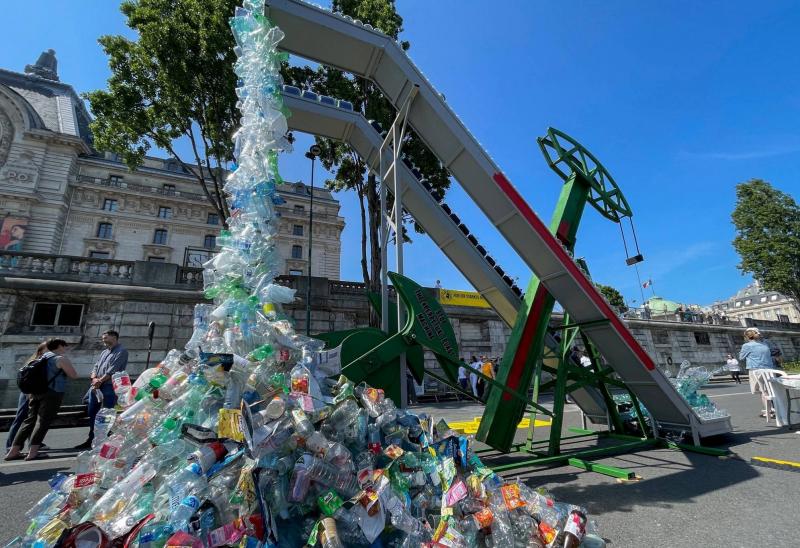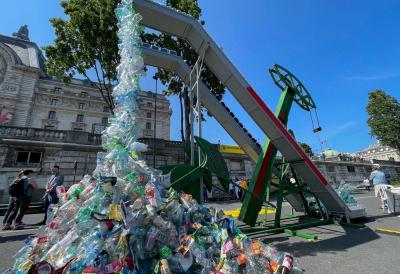International delegations are gathering in the French capital, Paris, to work towards a treaty on plastic production, as countries recognize the need to stop producing more plastic, while petrochemical manufacturing companies advocate for recycling as a solution to waste. Before the discussions that begin today, Monday, several countries stated that "the goal of the treaty should be 'reusability' or keeping existing plastic products useful for as long as possible."
The United Nations Environment Programme has issued a plan to reduce plastic waste by 80% by 2040. The program has identified three main pillars: reuse, recycling, and adopting alternative materials for packaging instead of plastic.
Some environmental advocacy groups criticized the report for focusing on waste management, viewing it as a capitulation to the pressure exerted by plastic and petrochemical manufacturers.
In the first round of talks in November in Uruguay, participating countries set a deadline to achieve a legally binding treaty within a year. So far, the delegations have not determined what the key objectives of the treaty should be, including whether to ban certain types of plastic and how to improve waste management practices. Additionally, countries have yet to resolve critical issues such as how to fund these policies, as well as how to implement, monitor, and report on them.




